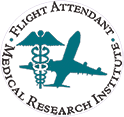FAMRI Centers of Excellence
FAMRI has provided funding for five Centers of Excellence since funding began in 2002. The FAMRI Center of Excellence at the Weizmann Institute of Science remains active.
FAMRI CENTER OF EXCELLENCE AT THE WEIZMANN INSTITUTE OF SCIENCE
Co-Directors: Varda Rotter, PhD; Zvi Livneh, PhD
The FAMRI Center for Advanced Research on Lung Cancer (CARE) was established in 2004 and is based at the Weizmann Institute of Science and the Sheba Medical Center in Israel. The long-term goals of the Center have been to elucidate the molecular genetic bases for lung cancer development and provide clues towards better diagnosis, prognosis, and therapy.
Much attention is naturally directed these days to the COVID-19 pandemic, yet tobacco-smoke-related diseases are still a central health issue and a major cause of mortality that needs to be addressed. Since smoking is considered a risk factor for SARS-CoV-2 infection, samples and clinical data were collected from COVID-19 patients in Sheba Medical Center and will be used to study the relationships between smoking, infection, and disease severity.
FAMRI SUPPORTED RESEARCH PUBLICATIONS
FAMRI has funded a number of other Centers in the past as noted below
FAMRI-BLAND LANE CENTER OF EXCELLENCE ON SECONDHAND SMOKE AT UNIVERSITY OF CALIFORNIA, SAN FRANCISCO
Co-Directors: Rita Redberg, MD; Neal Benowitz, MD
The FAMRI-Bland Lane Center of Excellence on Secondhand Smoke was established in 2002 and ended in 2018. The Center included a research project of lung health effects of cabin SHS exposure on Flight Attendants that includes resting pulmonary function testing and exercise testing, a children’s biomarkers’ study, an Analytical Chemistry Core, and an Administrative and Leadership Core. The Center evaluated lung and cardiovascular function in Flight Attendants. A FAMRI-funded study emerged from the Center entitled “Flight Attendant Cardiopulmonary Health Study”.
Warren Gold, MD is the PI and Mehrdad Arjomandi, MD, PhD, acts as Co-PI.
FAMRI CENTER OF EXCELLENCE AT THE SIDNEY KIMMEL COMPREHENSIVE CANCER CENTER JOHNS HOPKINS MEDICAL INSTITUTIONS
Directors: Charles Rudin, MD (2005-2013),
Philip Cole, MD and Julie Brahmer, MD (2013-2018),
Jun Liu, MD, PhD (2018-present)
The Johns Hopkins FAMRI Center of Excellence (HFCOE) was founded in 2005 and was dedicated to biomedical discovery and translation related to cigarette smoke-related disease. The HFCOE supported research in four core facilities and a variety of developmental projects. The core facilities conducted research in drug discovery, in vivo animal model analysis, clinical studies, and population-based exposures and outcomes. Some developmental projects included studies on telomeres and fibrosis, head and neck cancer therapies, epigenetics in lung cancer, and chemoprotection against asthma. Some of the achievements of the HFCOE researchers include the investigation of the antifungal drug itraconazole in patients with lung cancer and development of a protein small molecule conjugate for the potential treatment of immune/inflammatory lung diseases. They also discovered a new angiogenesis factor and identified some novel molecular mechanisms in pulmonary fibrosis.
The FAMRI Drug Discovery Core (DDC) was part of the original Center and continues today. The DDC provides support for the Johns Hopkins Drug Library (JHDL) Screening Center, led by Dr. Jun Liu, and the Johns Hopkins Synthetic Core Facility, led by Dr. David Meyers. Each of these components provides critical technology and resources for the FAMRI-related goals in immunology, inflammation, and stem cell translational research.
The Julius B. Richmond Center of Excellence at The American Academy of Pediatrics
Directors: Jonathan Klein, MD, MPH (2006-2020)
V. Fan Tait, MD, (2020-2021)
The Julius B. Richmond Center of Excellence (RCE) at the American Academy of Pediatrics (AAP) was established in 2006 and is dedicated to the elimination of children’s exposure to tobacco products and SHS. The object of the Administrative Core is to eliminate SHS exposure by optimizing interactions among investigators, collaborators, and other stakeholders to maximize the reach of the AAP RCE activities and projects. The Core has coordinated RCE research and education initiatives and worked to create a healthy environment for children and adults through the translation of research, education of clinicians and the general public, and promotion of evidence-based policies to eliminate exposure to SHS.
FAMRI SUPPORTED RESEARCH PUBLICATIONS
FAMRI-IELCAP CENTER OF EXCELLENCE MOUNT SINAI MEDICAL CENTER
C0-Directors: Claudia I. Henschke, PhD, MD and David Yankelevitz, MD
The FAMRI-IELCAP Screening Center began in 2005 and offered free scans to non-smoking flight attendants to screen for diseases caused by exposure to tobacco smoke, particularly among never-smoking Flight Attendants. Thirty-four sites were located throughout the United States. The grant for the Center of Excellence ended in 2018, but the need to scan Flight Attendants remained a high priority for FAMRI. In 2019, The Mount Sinai Health System was designated as the central point for continuing to the scans and provided free screenings to current and former never-smoking Flight Attendants, who flew pre-smoking ban. The screening ended in 2021 with the onset of the COVID epidemic.
